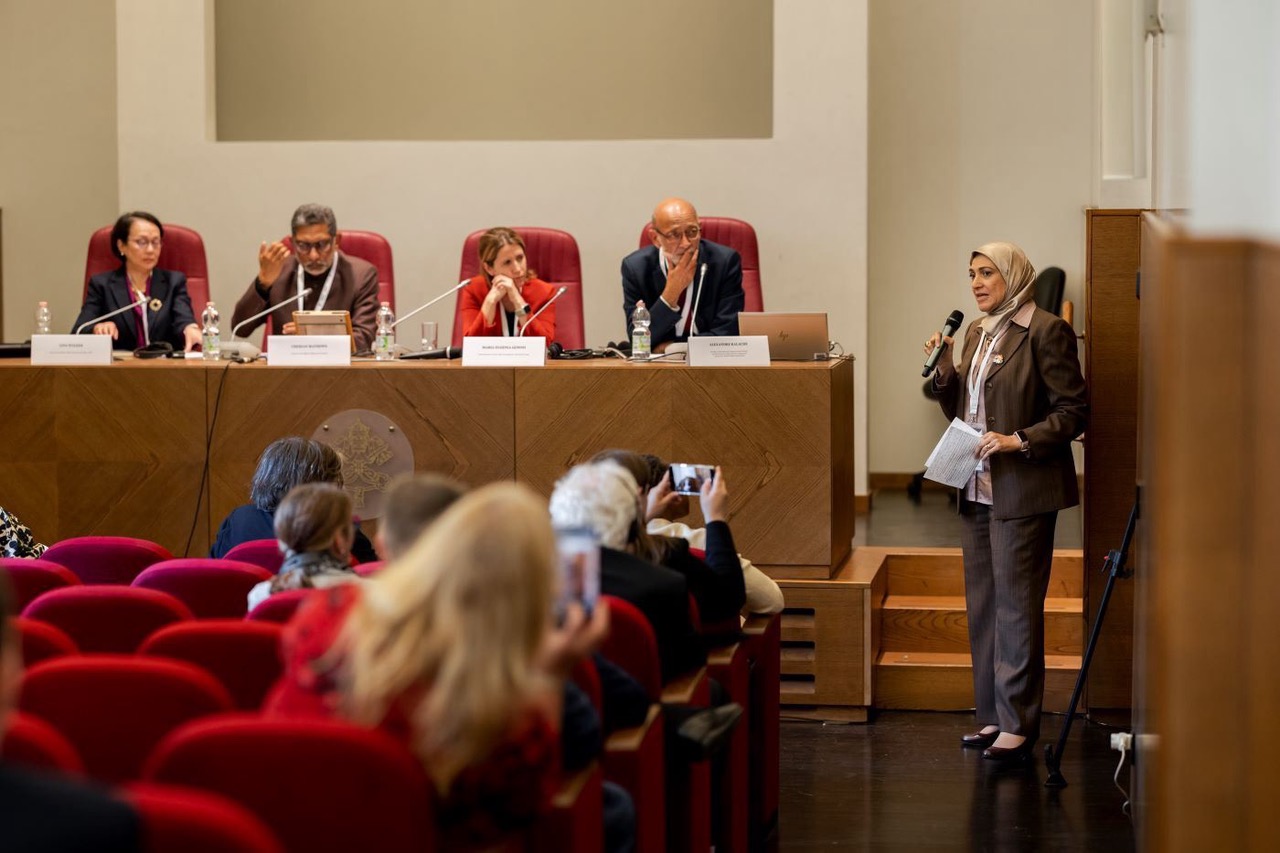In May 2025, I had the extraordinary honour of being invited by the late Pope Francis to attend a landmark symposium on global ageing at the Vatican. The event, titled “The Memory: A Symposium Addressing the Opportunities and Challenges of an Ageing Global Population,” brought together scholars, policymakers, religious leaders, and innovators from over 20 nations. The gathering offered a unique opportunity to reflect on the interconnected challenges of ageing, care, and human dignity in a rapidly changing world.
While the event came during a time of deep transition, just days after Pope Francis’s passing, with the conclave electing Pope Leo underway, it also served as a moment of continuity. Pope Francis had long championed the rights and dignity of older people, urging societies to see them not as burdens, but as integral parts of our collective memory. This spirit shaped every discussion that followed.
For me, attending the Vatican symposium was both a personal milestone and a reaffirmation of my professional mission. As one of the original Co-Investigators who helped secure funding for the Centre for Care, and as lead of its Research Group on Care Workforce Change, I have dedicated much of my academic career to investigating the critical, yet often overlooked, role of paid care workers in sustaining care systems.
Speaking Up for the Backbone of Care Systems
During the symposium, I had the privilege of presenting on two topics close to my heart: the wellbeing of formal long-term care workers and the implications of population ageing in the Middle East and North Africa (MENA). While both topics were underrepresented in the broader ageing discourse, they lie at the heart of current challenges in social care.
My first contribution focused on paid care workers, who are all too often invisible in global conversations about caregiving. Much of the global ageing narrative centres on the family, yet in many parts of the world, including the UK, care is delivered by an increasingly diverse, female-dominated, and migrant-rich workforce. These workers face enduring challenges: low pay, precarious contracts, high turnover, and limited pathways for progression. Poor working conditions in care are not only issues of employment rights, but they also directly affect the quality and continuity of care received by older adults.
Drawing on our ongoing work at the Centre for Care, I shared insights into how change, whether driven by policy, digitalisation, or social innovation, has profound implications for care workers. The Research Group on Workforce Change, is investigating how systemic pressures and organisational transformations are reshaping the experiences and expectations of the care workforce. Our interdisciplinary inquiries examine everything from the impact of digital tools on work routines to the agency of care workers in initiating change.
We are also particularly interested in how inequalities, rooted in gender, migration status, and ethnicity, interact with structural shifts in the sector. These issues have long been central to my research, which aims to build a more equitable, evidence-informed understanding of workforce sustainability in care.
From the MENA Region to the UK: Ageing as a Global Policy Imperative
In my second contribution, I discussed emerging insights from the MENARAH Network, a platform I helped to establish to support research on ageing across the Middle East and North Africa. Countries across the MENA region are experiencing demographic ageing at unprecedented speed, yet often without the institutional frameworks needed to support older adults’ wellbeing, autonomy, and inclusion.
In many MENA societies, older adults hold symbolic social value, but this cultural reverence can mask real vulnerabilities, particularly for older women, who often face exclusion from decision-making spaces. I argued for the need to move beyond symbolism to practical, structural support, ensuring older people have access to infrastructure, mobility, housing, and services that respect their rights.
This resonates deeply with our work at the Centre for Care. One of the key principles guiding our research is that ageing, and the care it entails, must be embedded across all domains of public life, from health and housing to transport and employment. This systems perspective is essential if we are to build societies that are truly inclusive of age.
Leading Change Through Research: The Centre for Care
The Research Group on Workforce Change (RGC) at the Centre for Care was established to examine precisely these types of complex dynamics. Our aim is to understand how workforce changes, whether gradual or sudden, internally generated or externally imposed, affect everyone involved in the care ecosystem. We ask difficult but necessary questions: What is driving workforce change? Who benefits? Who bears the cost?
Our inquiries are both empirical and conceptual. For instance, we explore how digitalisation is altering care roles and expectations, while also investigating the deeper cultural narratives that shape perceptions of care work. We use co-productive methods, working alongside care workers, employers, unions, and people who draw on care, ensuring that our research is grounded in lived realities.
Importantly, we see care workers not just as passive recipients of change, but as active agents who can shape, resist, and lead innovation. One of our current projects, for example, is mapping the different ways in which care workers are organising—whether through trade unions or grassroots campaigns, to demand better conditions and recognition.
This kind of research is not only about understanding change, it is about informing action. We want to provide evidence that supports more just and sustainable care systems, in which those who give care are afforded the respect, security, and voice they deserve.
A Global Dialogue Rooted in Local Realities
Returning from the Vatican, I was struck by the breadth of solidarity that exists around the issues of ageing and care. Whether in the corridors of the Holy See or in the community halls of Sheffield, the questions are often the same: How do we care for those who cared for us? How do we build systems that honour both need and contribution?
The answers, of course, are complex. But one thing is clear: change begins not with abstract policy declarations, but with listening, to older people, to care workers, to those whose lives are directly shaped by care. It also requires connecting the local to the global: recognising that the challenges of workforce sustainability, ageing justice, and care equity are shared across borders, even if they take different forms.
As we continue our work at the Centre for Care, I carry with me the lessons of the Vatican symposium, not only the call to dignity voiced by Pope Francis, but the urgency of placing care at the centre of public life. It is my hope that through our research, we can help build a world where care is not just seen as labour or cost, but as a shared societal commitment.
About the author
Shereen Hussein leads the Care Workforce Change Research Group for the Centre for Care. Shereen is a Professor of Health and Social Care Policy at the London School of Hygiene and Tropical Medicine. She is an established multi-disciplinary research leader with extensive social care and health research experience working primarily with policymakers in the UK and internationally. Her background is in medical demography, statistics and computer science.





